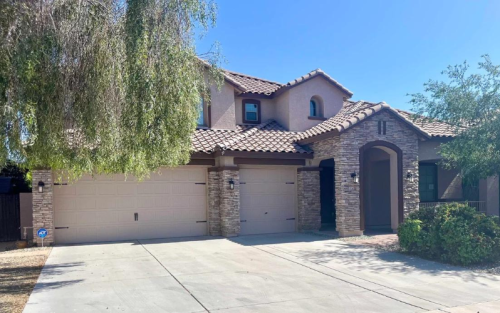


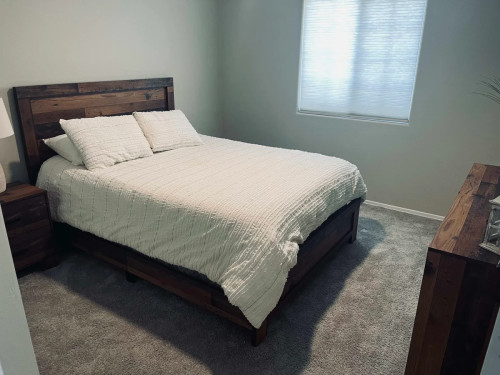





Algamus Gambling Recovery Center
Verified Center
This provider's information has been quality-checked by Recovery.com's Research Team for accuracy and completeness, including center verification through appropriate third-party organizations.
Treatment Focus
This center provides behavioral addiction treatment tailored to your unique concerns and symptoms, all in a supportive and compassionate environment.
Primary Level of Care
Offering intensive care with 24/7 monitoring, residential treatment is typically 30 days and can cover multiple levels of care. Length can range from 14 to 90 days typically.
Treatment Focus
This center provides behavioral addiction treatment tailored to your unique concerns and symptoms, all in a supportive and compassionate environment.
Primary Level of Care
Offering intensive care with 24/7 monitoring, residential treatment is typically 30 days and can cover multiple levels of care. Length can range from 14 to 90 days typically.
Provider's Policy
Algamus Gambling Treatment Center accepts most commercial insurance providers, but coverage may vary by state or policy. Please note that at this time, they are not able to accept Medicare or Medicaid. They are able to offer partial scholarships on a case by case basis. Some of the major insurance providers that Algamus is in network with include: Cigna, Tricare West, and Tricare West VA.
Algamus Gambling Recovery Center
Algamus Gambling Recovery Center
About Algamus Gambling Recovery Center
Algamus Recovery Services has been treating gambling addiction and the unique issues related to it for over 30 years. They serve men and women from all walks of life and all types of gambling addiction, including sports betting, poker, table games, slot machines, online games, and more. Featured on A&E’s Intervention, Algamus is one of the only residential gambling treatment centers in the United States, and the only one that is JCAHO accredited.
Benefit from Proven Therapies and Holistic Practices
Algamus offers a 4- to 8-week residential program tailored to gambling addiction. Many staff members are in recovery themselves, creating a compassionate environment with deep insight into the unique financial, legal, and emotional challenges gambling addiction presents. Their approach combines evidence-based modalities like cognitive behavioral therapy (CBT), group sessions, and holistic practices that promote mindfulness, physical fitness, and creativity. Certified gambling counselors and clinical psychiatrists address the root causes of addiction, including underlying mental health disorders, while integrating the 12-Step model.
Pursue Recovery with Personality-Based Strategies
At Algamus, they integrate the Enneagram, a personality framework, into treatment to offer a holistic and effective approach to recovery. This tool enhances self-awareness by helping clients understand the thought patterns, emotional triggers, core fears, and desires that lead to gambling. As a result, the Enneagram supports emotional healing and reduces reliance on unhealthy coping mechanisms. Treatment strategies are tailored to each client’s Enneagram type.
Heal in a Homelike Setting Away from Triggers
Algamus hosts clients in a serene lodge completely free from gambling and substances. With only 10 beds, including 2 private rooms ideal for unique needs like CPAP users, their accommodations ensure comfort with queen beds and no TVs in bedrooms, promoting rest and reflection. Clients can relax in one of three living rooms—two with TVs and one with a cozy den and fireplace—or enjoy outdoor amenities like a swimming pool and fire pit. A fitness regimen, including gym access, and the opportunity for clients to cook their own meals add to the homelike environment. Their scenic desert location is intentionally distanced from gambling venues, making it a welcoming space for those seeking to overcome gambling disorder.

Highlights from the Center
Highlights
These highlights are provided by and paid for by the center.
Perfect for Professionals
Private Rooms Available
12-Step Approach
30+ Years in Business
Center Overview
Treatment Focus
This center provides behavioral addiction treatment tailored to your unique concerns and symptoms, all in a supportive and compassionate environment.
Joint Commission Accredited
The Joint Commission accreditation is a voluntary, objective process that evaluates and accredits healthcare organizations (like treatment centers) based on performance standards designed to improve quality and safety for patients. To be accredited means the treatment center has been found to meet the Commission's standards for quality and safety in patient care.

Algamus Gambling Recovery Center
Insurance Accepted
Cash Pay Rates
Estimated Cash Pay Rate
Center pricing can vary based on program and length of stay. Contact the center for more information. Recovery.com strives for price transparency so you can make an informed decision.

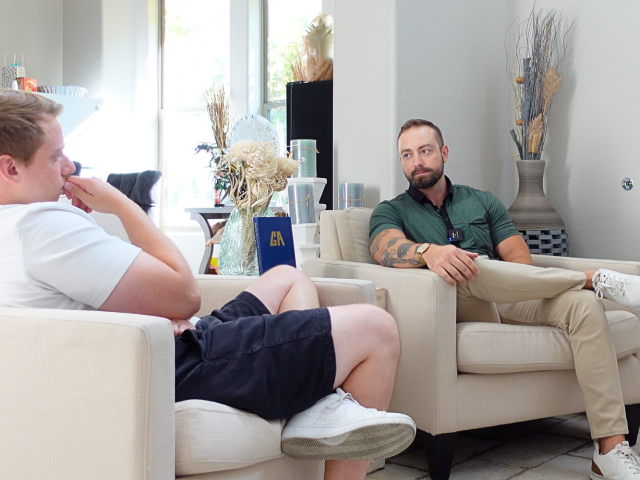


Recovery.com Verified Listing
Recovery.com verified that the name, location, contact information and license to operate for this treatment provider are valid and up-to-date.

Joint Commission Accredited

Licensed by Arizona DHS
Recovery.com is an independent, third-party mental health resource. Verification does not imply endorsement and does not guarantee the quality of treatment services.
Meet Your Care Team

Rick Benson
Founder
ICGC-II, CPGC

Bryan Hullihen
Managing Director

Jody Pegram
Co-Founder & CEO
ICGC-II

Ken Litwak
Executive Director
MS, LCADC, ICGC-II, CCTP, DRCC, IGDC
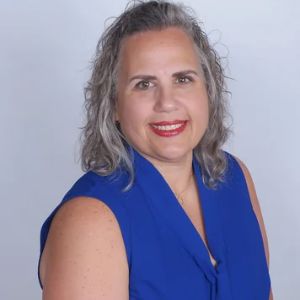
Sandra DeGroat
Clinical Director
MA, MPhil, APRN, PMHNP-BC, CCTP, CAIMHP
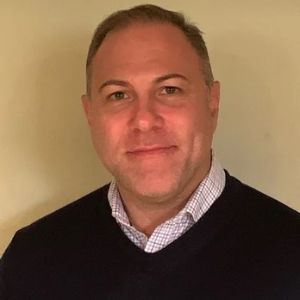
Scott Melissa
Business Development Director

Dr. Mona Amini
Consulting Psychiatrist
MD, MBA
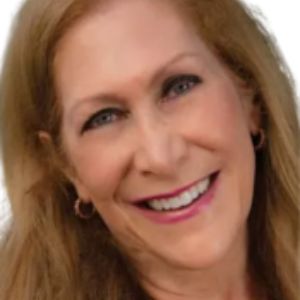
Renee Siegel
Program Director
LISAC, MAC, HHP, CPIC, PCC
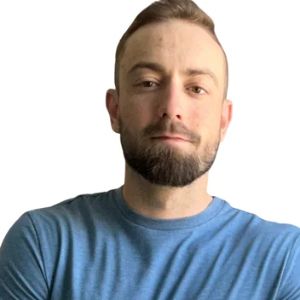
Anthony Williams
Operations Director

Nicole Warren
Yoga Instructor & Breathwork Facilitator

Doug Martin
Peer Certified Recovery Coach (PCRC) and Accredited Gambling Counselor
Your Care Options
Specializations
Family Therapy
Family therapy addresses group dynamics within a family system, with a focus on improving communication and interrupting unhealthy relationship patterns.
Gambling
Excessive, repetitive gambling causes financial and interpersonal problems. This addiction can interfere with work, friendships, and familial relationships.
Personalized Treatment
The specific needs, histories, and conditions of individual patients receive personalized, highly relevant care throughout their recovery journey.
Professionals
Busy, high-ranking professionals get the personalized treatment they need with greater accommodations for work, privacy, and outside communication.
Veterans
Patients who completed active military duty receive specialized treatment focused on trauma, grief, loss, and finding a new work-life balance.
Twelve Step
Incorporating spirituality, community, and responsibility, 12-Step philosophies prioritize the guidance of a Higher Power and a continuation of 12-Step practices.
Who We Treat
Older Adults
Addiction and mental health treatment caters to adults 55+ and the age-specific challenges that can come with recovery, wellness, and overall happiness.
Executives
Executive treatment programs typically directly support the needs of people who manage businesses and may provide flexible schedules and office space to allow work during treatment.
Young Adults
Emerging adults ages 18-25 receive treatment catered to the unique challenges of early adulthood, like college, risky behaviors, and vocational struggles.
Men and Women
Men and women attend treatment for addiction in a co-ed setting, going to therapy groups together to share experiences, struggles, and successes.
Midlife Adults
For adults ages 40+, treatment shifts to focus on the unique challenges, blocks, and risk factors of their age group, and unites peers in a similar community.
Professionals
Busy, high-ranking professionals get the personalized treatment they need with greater accommodations for work, privacy, and outside communication.
Veterans
Patients who completed active military duty receive specialized treatment focused on trauma, grief, loss, and finding a new work-life balance.
Treatment Services
Residential
In a residential rehab program, patients live onsite, with access to daily treatment and 24-hour care. An average stay is 30-90 days.
Approaches
Evidence-Based
A combination of scientifically rooted therapies and treatments make up evidence-based care, defined by their measured and proven results.
Individual Treatment
Individual care meets the needs of each patient, using personalized treatment to provide them the most relevant care and greatest chance of success.
Personalized Treatment
The specific needs, histories, and conditions of individual patients receive personalized, highly relevant care throughout their recovery journey.
Twelve Step
Incorporating spirituality, community, and responsibility, 12-Step philosophies prioritize the guidance of a Higher Power and a continuation of 12-Step practices.
Therapies
1-on-1 Counseling
Patient and therapist meet 1-on-1 to work through difficult emotions and behavioral challenges in a personal, private setting.
Meditation & Mindfulness
A practiced state of mind that brings patients to the present. It allows them to become fully aware of themselves, their feelings, and the present moment.
Family Therapy
Family therapy addresses group dynamics within a family system, with a focus on improving communication and interrupting unhealthy relationship patterns.
Twelve Step Facilitation
12-Step groups offer a framework for addiction recovery. Members commit to a higher power, recognize their issues, and support each other in the healing process.
Yoga
Yoga is both a physical and spiritual practice. It includes a flow of movement, breathing techniques, and meditation.
Conditions We Treat
Gambling
Excessive, repetitive gambling causes financial and interpersonal problems. This addiction can interfere with work, friendships, and familial relationships.
Languages
Aftercare
Care Designed for Your Needs
Personal Amenities
Amenities
Special Considerations
Gender-specific groups
Patients in gender-specific groups gain the opportunity to discuss challenges unique to their gender in a comfortable, safe setting conducive to healing.
Activities
Yoga
Yoga is both a physical and spiritual practice. It includes a flow of movement, breathing techniques, and meditation.
Learn More About the Center
Effects of Gambling on the Brain
Understand how gambling addiction alters brain function over time and its similarities to substance addiction.
How to Stop Chasing Losses
Learn ways to overcome the vicious cycle of attempting to win back money that was lost.
Women and Sports Betting
Take a closer look into why a growing number of women are developing sports betting addictions.
Signs of Problem Gambling Among College Students
Explore the signs of problem gambling among students, the impact of sports betting on this demographic, and how to seek help.





